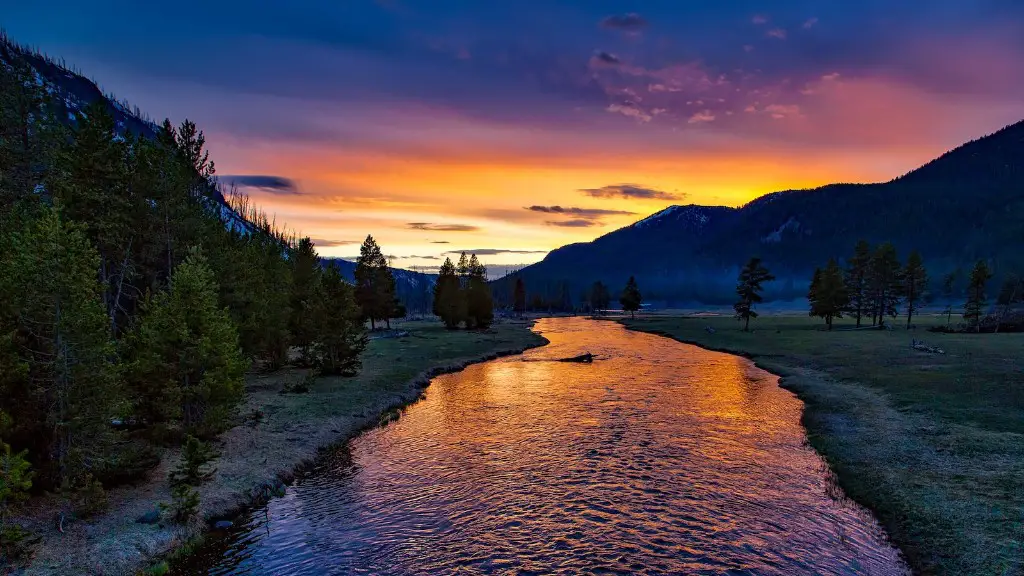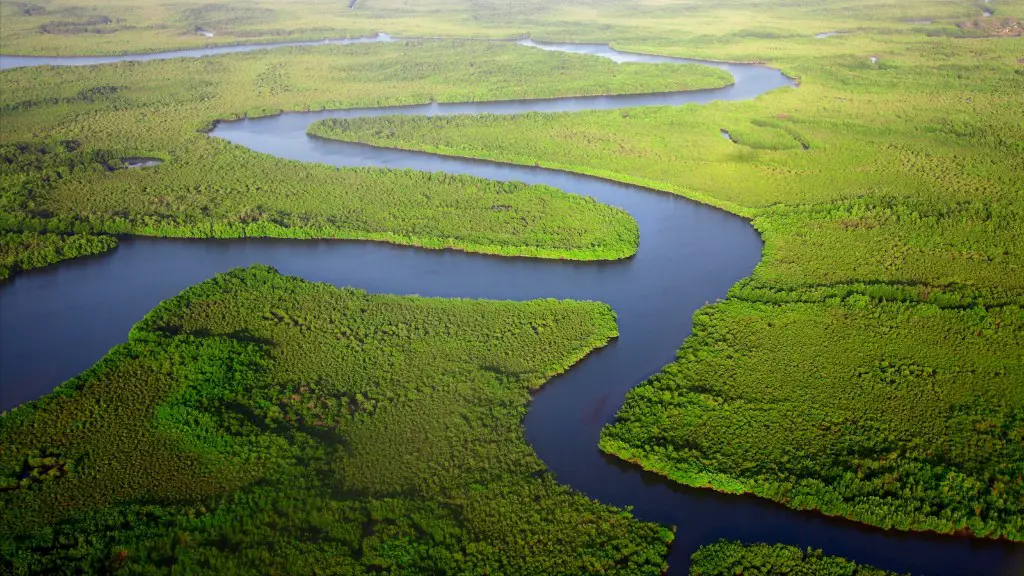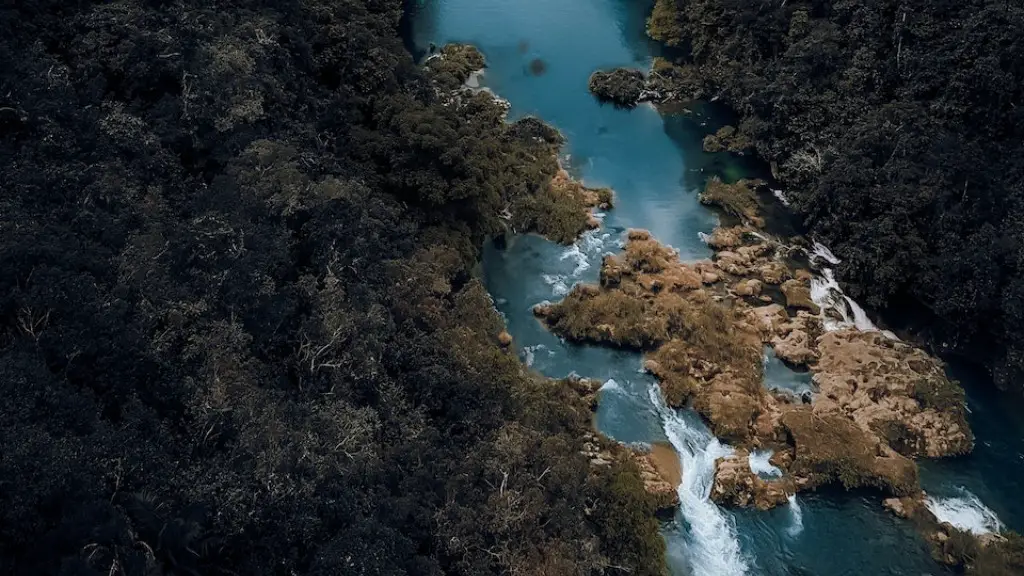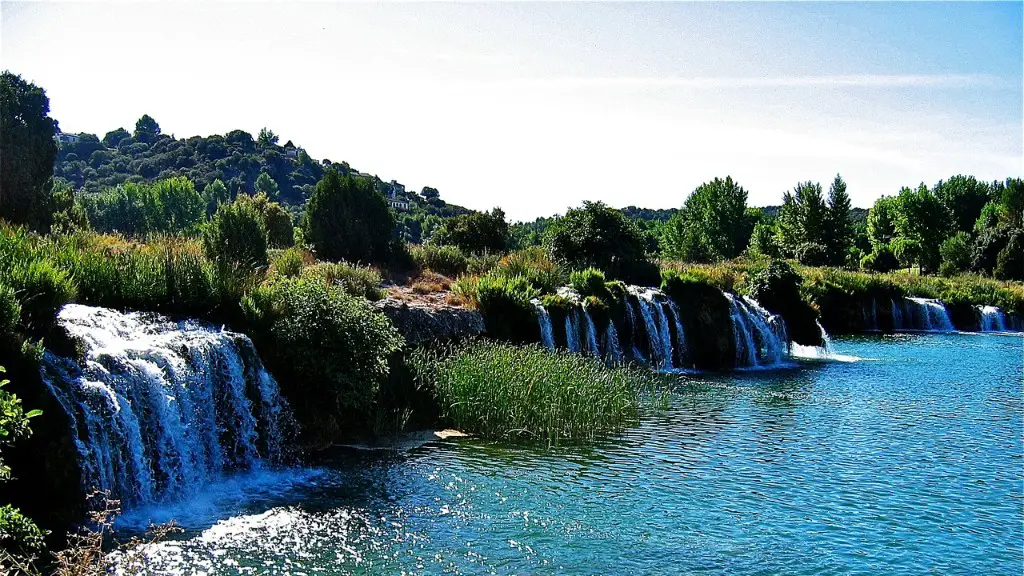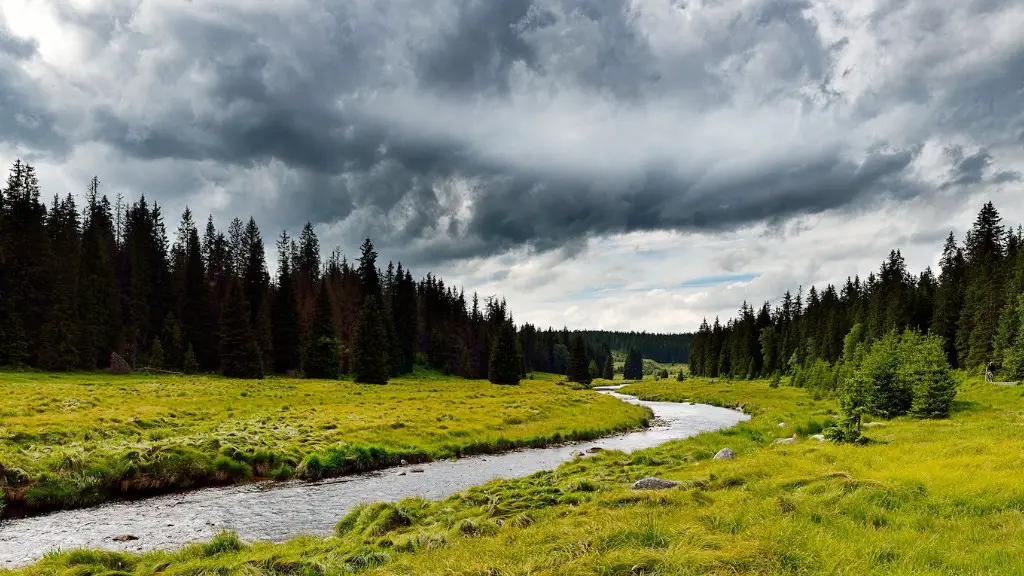The Nile is the longest river in the world, with a length of 4,258 miles. It flows through the countries of Egypt and Sudan, with both countries relying on it for irrigation and transportation. But did Egypt really use the Nile to their advantage? Were there special uses or purposes that the Egyptians found beneficial?
The answer is a resounding “yes”! Egyptians used the Nile for many different reasons and in many ways, throughout their long and illustrious history. As far back as the Bronze Age, the Nile was used for a variety of agricultural, economic and cultural purposes. From fishing to trade, from burials to transportation, the Nile was integral to the development and advancement of the Egyptian economy and people.
In the earliest stages of its existence, the Nile has served as a major source of freshwater for the region. This enabled the growth of crops and the sustenance of larger populations throughout the region. As ironworking, pottery and other crafts developed, Egyptians relied on the Nile as a source of potable water, as well as a source of material goods, such as stone, timber and other raw materials.
The Nile also became a major artery of trade and commerce. The river provided a safe and efficient way of moving goods and people from one region to another. This facilitated the growth of trade routes and cities along the river, allowing goods to be exchanged between Egypt and its neighbors. This in turn helped Egypt to become an economic superpower in the ancient world.
Egyptians also made extensive use of the Nile for religious and spiritual purposes. The river was sacred to many of the gods of ancient Egypt, and offerings and tributes were made to it regularly. The Nile was also a major source of spiritual cleansing and cleansing rituals were regularly performed along its banks. Furthermore, many of the major cities of Egypt were built near the Nile, and the river was seen as a symbol of fertility and abundance.
The Nile also played an important role in the Egyptian military. The river was often a major buffer between Egypt and her enemies, and the Egyptian navy sought to maintain control over its waters. Furthermore, the Nile made it possible for the Egyptians to launch surprise attacks on their enemies, as they could move troops quickly up and down the river, making them difficult to counter.
Thus, it can be seen that the Nile was an essential part of life in ancient Egypt. It was used for a variety of purposes, both agricultural and military, which helped the Egyptians to maintain their power and prosperity. While other river systems of the ancient world may have been more important in terms of overall geography and significance, the Nile was truly the river that was integral to the daily life of the people of Egypt.
Agricultural Uses Of The Nile
The Egyptians used the Nile for agricultural purposes, such as irrigating their crops, supplying them with water, and fishing. The steady flow of the river provided an excellent source of freshwater to the fields, enabling farmers to sustain larger populations and cultivate more land. The river also provided a source of fish, which was an important source of protein for the Egyptians. The use of the Nile for fishing was also a major source of income for them.
The Nile further served as an important mode of transportation, allowing farmers to move goods up and down the river quickly and efficiently. This enabled their goods to be exchanged with their neighbors, resulting in the growth of trade across the region. Furthermore, the Nile was often the site of irrigation projects, which allowed the Egyptians to create canals, dams, and lakes to increase their crop yields.
The Nile was also the source of spiritual power and an object of veneration for the Egyptians. The river was seen as sacred to many of the gods in the Egyptian pantheon, and rituals were regularly performed to honour and pay tribute to them. The river was also believed to be the source of life and abundance for the people of Egypt, and offerings were regularly made to the gods of the river.
Cultural Importance
The Nile was also an important part of Egyptian culture and the way they lived their lives. The river was often immortalized in their literature, art, and music, with its waters providing a steady source of poetic and metaphorical inspiration. This can be seen in the works of great writers such as Homer and Herodotus, who often wrote about the beauty, power, and bounty of the Nile.
Furthermore, the Nile was also the site of many important religious rites and ceremonies, such as funerary practices. Egyptians commonly buried their dead in the waters of the river, believing it to be an act of spiritual unity with their gods. Additionally, the Nile was also believed to be the giver of life, and many festivals were held along its banks in its honour.
Finally, the river was also a major source of entertainment for the Egyptians. They would go to its banks to watch the ships, hunt for fish, and generally enjoy its peaceful and leisurely atmosphere.
Military Uses of The Nile
The Egyptians also used the Nile for military purposes. The river was a major defence against invasions by their enemies, as the Egyptians had a navy that maintained control over its waters. Furthermore, they could launch fast-moving raids on their enemies by taking advantage of the river’s steady current, enabling them to take the enemy by surprise.
Additionally, the Egyptians used the Nile as a barrier to keep their enemies at bay. When foreign powers sought to attack, they would often have to cross or retreat along the river, thus allowing the Egyptians to defend themselves more effectively.
Egyptians also used the Nile for reconnaissance and espionage purposes. They would send spies up and down the river to gain intelligence about the enemies, and make preparations for the next attack.
Economical Uses Of The Nile
The Nile also had an important role in the development of the Egyptian economy. As a major artery of trade and commerce, the river enabled the growth of cities and trade routes throughout the region. This allowed for the exchange of goods between Egypt and her neighbours, increasing the wealth and stability of the country.
Furthermore, the river also allowed for the transportation of raw materials to the region, such as timber, stone and other resources. This made it easier to produce tools and materials that could then be traded, leading to the growth of cities and a booming economy.
The river also served as a major source of income for the Egyptians, as it allowed them to fish and develop other professions. Furthermore, it was often a main source of food for poorer families, as they could fish and hunt along the banks of the river.
Overall, the Nile played an important role in the development and growth of the Egyptian economy. It enabled the exchange of goods, resources, and services, resulting in greater prosperity and better quality of life for Egyptians.
Social Uses of The Nile
The Nile was also an integral part of the social life of the Egyptians. It served as a major source of entertainment for them, as they could go to its banks to watch the ships, hunt for fish, and just enjoy its peaceful and leisurely atmosphere. Families also often went out on the river on picnics, while fishermen took their boats out to try and catch the river’s abundant bounty.
Furthermore, the river was also a major social event and celebration site. Egyptians would gather on its banks to mark special occasions, such as the flooding and fall of the river, as well as other important festivals. People would also celebrate events such as the full moon, birthdays and marriages, with music and dancing often taking place along the river’s banks.
Finally, the Nile was also an important part of the daily life of the Egyptians. It served as a source of water for drinking and irrigation, and its waters were integral to the sustenance of the population. People from all walks of life made use of the river, from those who fished and hunted, to those who traded and hunted.
